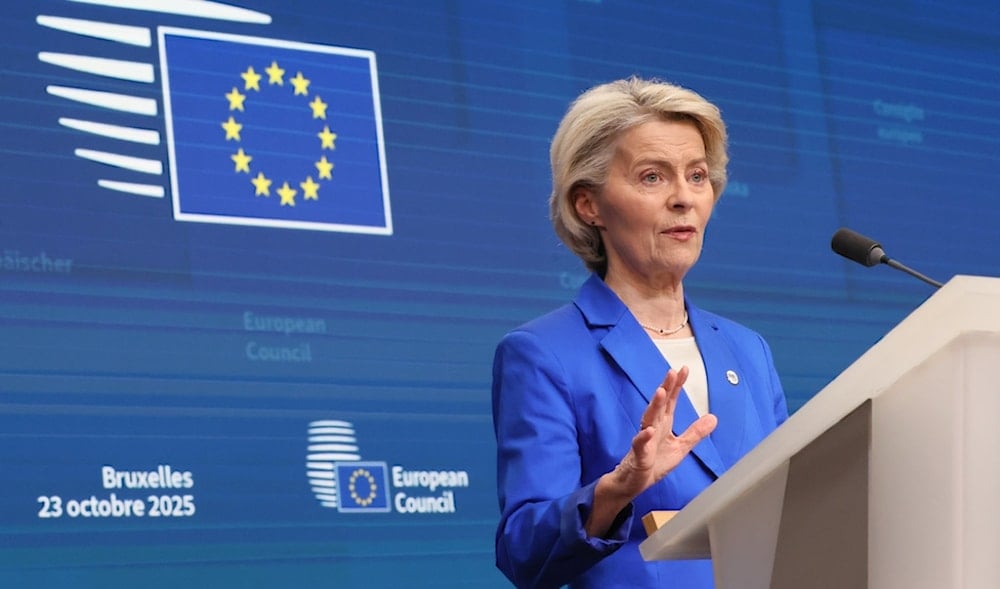EU unveils rare earths plan in attempt to cut dependence on China
The EU is accelerating efforts to reduce reliance on China for rare earths by focusing on recycling, local production, and partnerships with countries like Kazakhstan, Canada, and Australia.
-

European Commission President Ursula von der Leyen addresses a media conference at the conclusion of an EU Summit in Brussels, Thursday, Oct. 23, 2025. (AP)
The European Union is stepping up efforts to reduce its dependence on China for critical raw materials, particularly rare earths, as Beijing imposes tighter export controls on minerals vital to several key industries.
Beijing, the world's top producer of rare earths, introduced new restrictions this month on the export of technologies used in rare earth processing. Exports now require approval, particularly for magnets containing rare earths. China has also added five more elements, holmium, erbium, thulium, europium, and ytterbium, to its restricted list.
Impact on EU industry
In response, European Commission President Ursula von der Leyen said Saturday that the EU is actively developing a comprehensive strategy to secure access to alternative rare earth sources.
The European Commission noted that the new Chinese controls have forced several EU-based companies to halt production, citing the unavailability of essential raw materials. The trade disruption has intensified EU-China trade tensions and exposed the vulnerability of European industries reliant on Chinese rare earths.
“The aim is to secure access to alternative sources of critical raw materials in the short, medium and long term for our European industries,” von der Leyen stated.
Recycling will play a central role in the EU’s rare earths plan. “Some companies can recycle up to 95 percent of critical raw materials and batteries,” von der Leyen noted, highlighting the importance of innovation in reducing reliance on imports.
The EU also intends to enhance the production and post-processing of rare earth elements within its borders, while forging strategic partnerships with countries that can serve as alternative rare earth sources. These include Ukraine, Australia, Canada, Kazakhstan, Uzbekistan, Chile, and Greenland.
Precedent: China opens rare earth channel for EU
China previously suspended certain rare earth exports in April, a decision that raised alarms in European industry over access to critical materials vital for high-tech manufacturing and green energy initiatives.
However, it did signal a willingness to accelerate the approval process for rare earth mineral exports to the European Union, in what appears to be a strategic effort to ease mounting trade friction.
The rare earth initiative coincided with a broader effort by both sides to de-escalate trade tensions as they near key rulings. China's Commerce Ministry said it is reviewing new technical proposals put forward by the EU while also working to stabilize its trade relationship with Brussels amid intensifying competition over electric vehicles, semiconductors, and strategic supply chains.
China had reportedly reached a consensus with them on essential terms, with a final ruling expected before July 5 pending review. Major French exporters such as Hennessy and Martell are among those affected.

 3 Min Read
3 Min Read










